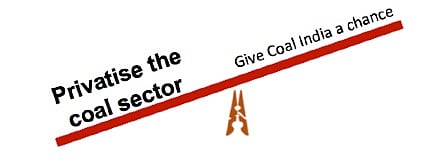Edits In Short: January 7, 2013
Didn’t get time to read the edit pages in today’s papers? Don’t worry. We’ve read them for you!
The Hindu, January 7, 2013
An election deal is the only way – Editorial
Nepal is in a political mess. And this edit explains why. Nepal does not have a legislature, the executive’s legitimacy is contested, the caretaker government commands limited authority, the judiciary is at less than half strength, the 5-member Election Commission (EC) has only two commissioners left who are retiring in a week. You get the picture?
“There is no agreement in sight over the nature and composition of the government, the electoral system, voter roll disputes, EC appointments, and a mechanism to clear the constitutional hurdles for elections.”
Adding to the chaos, Nepal’s opposition wants power before the polls. The edit warns – Nepal’s parties must arrive at a deal soon and hold elections by May to restore constitutional order and political legitimacy.

The chosen one – Editorial
It is surprising, the edit comments, that Karunanidhi has gone public with his choice of successor for the DMK – his younger son MK Stalin. The choice according to the edit, is no surprise to anyone. Neither is it that his elder (un-chosen) son MK Alagiri doesn’t care. He’ll go ahead and stake his claim to the DMK throne anyway. In the post-Karunanidhi phase, of course! If Karunanidhi wanted to put pressure on Alagiri to accept his choice of successor, he has failed.
The edit hits the nail on the head when it observes, “The best solution is actually the easiest too: to let the party choose its leader. But, as Mr. Karunanidhi knows only too well, that would not settle the dispute in his family.”

Why a national water framework law? – Main Article
This piece by Ramaswamy R. Iyer, former Secretary, Water Resources, Government of India is an attempt to make the reader understand that a national law on water is very necessary – and it must be a framework law (a statute which is drafted in general terms and merely lays down a framework, mostly in the form of overall principles, objectives and guidelines).
The government tried but failed to persuade state governments to accept the idea of a national water framework law. The manner in which the Centre put forward that idea must have given indications of the underlying desire to strengthen the hands of the Centre, which the author writes, “must have set the alarm bells ringing in the minds of the Chief Ministers”.
The author writes that “their fears of centralisation need to be dispelled in a convincing manner, and what is put forward must be a real framework law.”

The Hindustan Times, January 7, 2013
Think beyond self-sufficiency – Editorial
The edit drives home the point that “Food security today is not about self-sufficiency, it is about recognizing that food is a global commodity and being a major force in that market.”
India, it states, was the world’s largest exporter of rice last year and is a significant exporter of sugar, cotton, guargum and oilseed meal. It shipped out $20 billion more agricultural products than it shipped in. Profitable exports will ensure farmers get the right price for their products. Food exports also keep down domestic food inflation since food prices in India are increasingly determined by global benchmarks. When India exports rice or sugar, it helps depress the world price.

A dirty job, but somebody’s got to do it – Article
Markandey Katju, Chairman, Press Council of India and a former judge of the Supreme Court, writes that “The Bar Association of Saket’s resolution that none of its lawyers will defend the accused in the Delhi Gang rape case is not only illegal but also against all traditions of the bar and professional ethics.”
He cites cases like the defence of Mahatma Gandhi’s killers, Ajmal Kasab and others as well as Chapter II of the Rules framed by the Bar Council of India to make his point.
“All such resolutions of Bar associations in India are null and void and the right minded lawyers should ignore and defy such resolutions if they want democracy and rule of law to be upheld in the country.”

With you, for you, always? – Editorial
The edit categorically states that the reaction of the police to the Delhi rape of adding more patrol cars on the road and increasing the number of policewomen on the streets, is not good enough. “…first remind policemen that they need to act decisively when the need arises.”
Delhi as well as other metros don’t have the mandated 10% women in the police force, forget about the ideal 30%. Nor do they have 24-hour manned helplines. Add to that the Delhi gangrape victim’s friend’s testimony that the police who arrived on the scene spent precious time bickering over jurisdiction.
Instead of just tinkering with the fixtures in the system and adding new ones, police force and helpline managers should “constantly be reminded that their indifference can be a question of life and death.”

The Indian Express, January 7, 2013
Too many cooks – Editorial
In light of SEBI’s discussion paper on corporate governance issued last week, the edit agrees with SEBI’s contention that best practices in corporate governance are best achieved by a regulator’s nudge rather than by making them part of laws. It ends with “Sebi has done well to identify key areas of concern and address them as questions to India Inc.”

Eye on Islamabad – Editorial
The edit comments on the effect on Pakistan’s political scene of “crusading” cleric Tahir-ul-Qadri’s return. This development has made both Zardari’s and Nawaz Sharif’s parties “nervous”. They have already issued a joint resolution against Qadri in the Punjab assembly. Although the cleric denies any political ambitions, his popularity could be a problem in the upcoming polls.

Bold and the powerful – Editorial
Commenting on what looks like an apparent succession war in the DMK, the edit claims that the party’s political agenda has taken a backseat to this issue. It is also likely to affect DMK’s political fortunes as the party has now become all about who takes over the leadership, rather than what its politics stands for.

The Times of India, January 7, 2013
Mining Crushers – Editorial
The piece furthers Montek Singh Aluwalia’s call for allowing private competition in the coal sector to compete with Coal India, which accounts for four-fifths of the national production and holds monopoly rights for the distribution of coal in the open market. Coal India has been unable to meet rising demands; in fact, its supply has dropped to less than half.
By allowing private competition in the sector, we will raise domestic production and locate more accessible coal reserves. This will bring down rising oil and coal import bills and the current account deficit to manageable levels.

Rape of reason – Editorial
Swagato Ganguly in his piece encapsulates two ways of “approaching the topic of rape guaranteed not to bear any fruit” – the way of the right, and the other – the way of the Left. The other approach is that of Mamata Banerjee who is of the view that rape cases rise because men and women interact freely. This approach backed by many politicians has many variants – provocative dressing, women going out at night, modernisation, the “Bharat not India” argument.
In this scenario, if a woman walks around in hot pants, a right-winger would say she is being provocative while a leftist would see it as commodification of the self. Both fail to recognise her right to be a sex object when she wants to. A serious social transformation needs to come about and sex crimes can be curbed only when the law, the government and society at large recognise this right.

Nivedita Menon: We’re witnessing new interventions by feminists of all genders
Academic Nivedita Menon speaks to Amrita Nandy about her book, Seeing like a Feminist in which she has explored the role and energy of feminism, convention vs feminism and discovered that “feminism eventually liberates women even from being feminists”.
Menon states that feminists have long tried to build an understanding to desexualise rape – in law and everyday life. Menon argues that the hegemony of dominant values in society and cultural pressure allow women to make choices, but only within strict boundaries which are non-negotiable – class, caste, race and/or gender.
Feminism, she adds, is not about a moment of final triumph but the gradual transformation of the social field, so that old markers shift forever. In the protests that mobilised the entire country, she saw a reflection of this.

Crime And Punishment – Main Article
Senior Supreme Court advocate, Vikas Pahwa, summarises succinctly the principle argument presented in his piece – that what should be considered are the accused’s intentions and his capacity to understand criminal responsibility, and not his age.
One of the accused of the Delhi gang rape is a juvenile and will be tried under the provisions of the Juvenile Justice (Care and Protection of Children) Act, 2000. According to the Juvenile Justice Act, 1986 a boy less than 16 years of age and a girl less than 18 years of age were considered and tried as juveniles. In 2000, the Parliament introduced a new Act increasing the age of juvenile males from 16 to 18 years.
Pahwa also argues that the growth of a child is a continuous process and that brains of 16-year-old young adults are developed to an extent that it helps them to inhibit impulses and to plan and organise their behavior to reach a goal. In other words, they can discern between what is right and what is wrong.

Comment Policy: We encourage discussion and debate in our comments, among viewers and writers. However comments that are abusive or personal in nature, will be deleted.
